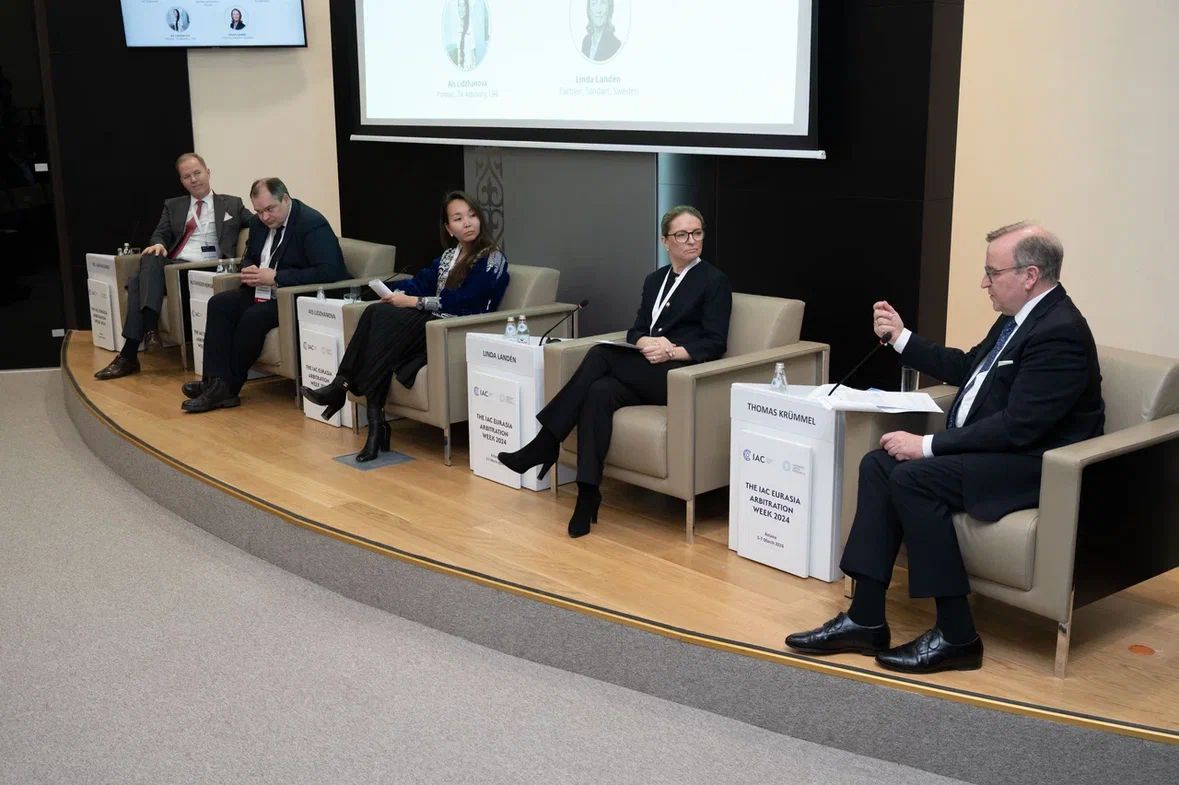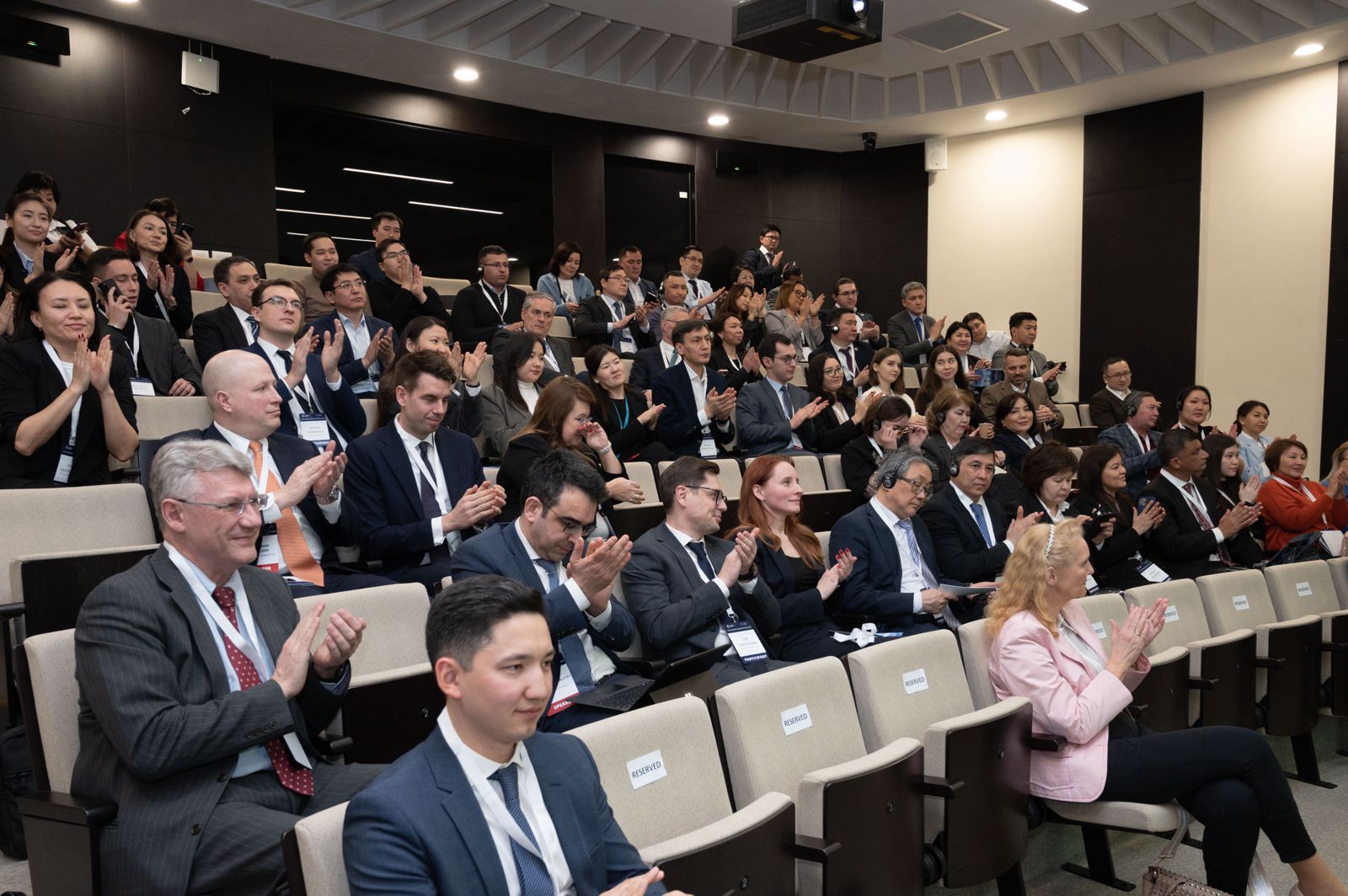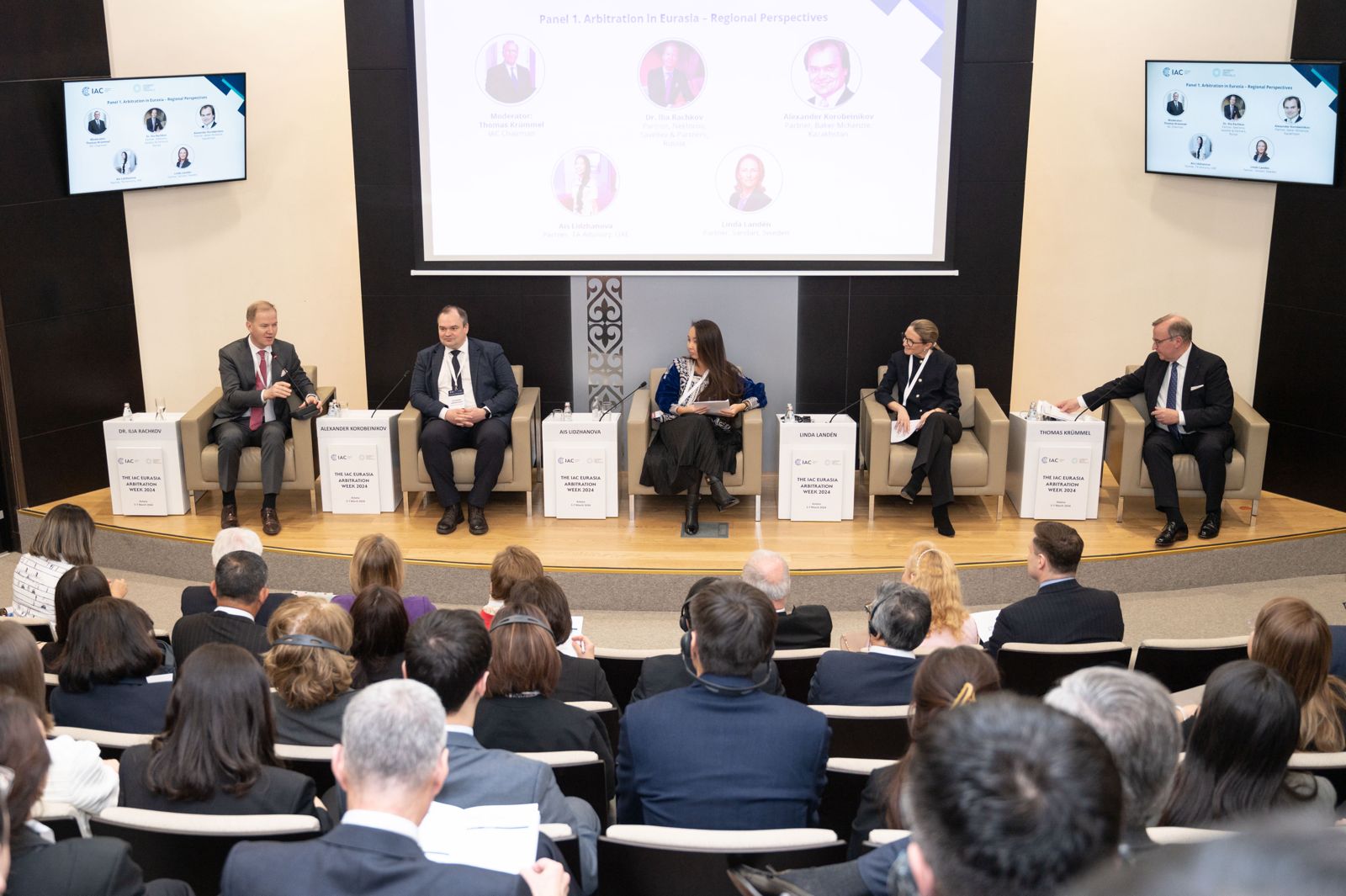ASTANA — The Astana International Financial Centre (AIFC) International Arbitration Centre (IAC) launched the Eurasia Arbitration Week 2024 (EAW24) on March 5. The session, Arbitration in Eurasia – Regional Perspectives, moderated by IAC Chairman Thomas Krümmel convened distinguished figures and experts to delve into the multifaceted arbitration landscape, highlighting regional perspectives and challenges.

The session convened distinguished figures and experts to delve into the multifaceted landscape of arbitration. Photo credit: AIFC Court press service
Dr. Ilia Rachkov, a partner at Nektorov, Saveliev and Partners in Russia, provided insights into the burgeoning trend of establishing local arbitration institutions within individual countries. He emphasized the intrinsic connection between accessibility and local arbitration services, noting that dissatisfaction with litigation often prompts the establishment of arbitration institutions.
Dr. Rachkov underscored the perceived advantages of arbitration, including its potential for swifter and more cost-effective dispute resolution than traditional litigation.

Launched on March 5, Eurasia Arbitration Week 2024 will run until March 7. Photo credit: AIFC Court press service
“I will say that arbitration should be quicker and less expensive than litigation, just because litigation consists of more than just one instance. In many cases, even if your appeal may or may not be allowed, you can still spend substantially more time litigating,” he said.
Dr. Rachkov shed light on the confidentiality aspect of arbitration, citing it as a critical advantage for businesses seeking to resolve conflicts discreetly and without public scrutiny. He emphasized the significance of arbitration’s confidentiality feature in preserving the privacy of disputing parties and shielding them from external criticism or misinterpretation.

Cooperations and other investors have cited the AIFC Court and IAC as the preferred choice for international commercial dispute resolution in Eurasia. Photo credit: AIFC Court press service
“For businesses, it is important not only to solve conflicts quickly, but to stay in the shadow, to have the possibility to resolve conflicts without being exposed to the criticism of the general public, or even to some kind of leak of information or misinterpretation of what is going on in the process of dispute,” he said.
In discussing the IAC in Kazakhstan, Dr. Rachkov underscored its unique advantages, mainly its streamlined distribution functions and the ability for parties to select their arbitrators. He highlighted the importance of trust in the arbitration process and underscored the necessity for arbitrators to uphold principles of independence and impartiality.
Addressing the topic of gender equality, Dr. Rachkov asserted that the region does not encounter significant challenges in this regard. He highlighted the historical precedence of gender equality in the former Soviet Union and noted the active participation of women in various roles within the legal profession and arbitration.
IAC Chairman Thomas Krümmel provided an interesting observation regarding gender representation within the IAC, noting that 75% of arbitrators in their cases were female.
The conversation extended to regional specificities and challenges arbitrators operating within the Eurasian context faced. Dr. Rachkov commended Kazakhstan’s openness to foreign legal systems, highlighting its receptiveness to English law to resolve disputes.
Alexander Korobeinikov, a partner at Baker McKenzie in Kazakhstan, emphasized the historical significance of arbitration in Kazakhstan, noting that it has long been ingrained in the nation’s culture as a preferred method for resolving disputes. He emphasized the importance of impartiality in arbitration, advocating for arbitrators from diverse backgrounds to ensure fairness and credibility in the process.
“Kazakhstan has arbitration in its DNA. For many centuries, Kazakh people preferred that these ‘arbitrators’ should come from far away. It was even more reputable for parties to have such an arbitrator who comes not from the same region as the parties. That is also something in line with the idea of international arbitration, to have arbitrators from different parts of the world,” he said.
Korobeinikov also discussed the role of the AIFC in promoting arbitration in Kazakhstan and the broader Eurasian region. The AIFC, with its world-class infrastructure and legal framework, provides an ideal platform for international arbitration proceedings. He touched upon the role of artificial intelligence (AI) in arbitration and legal proceedings. He acknowledged the increasing use of AI in various aspects of legal practice and suggested that its incorporation into arbitration processes could enhance efficiency and effectiveness.
However, he also raised important questions about the regulation and ethical considerations surrounding using AI in the legal profession, particularly in decision-making by judges and arbitrators.
The panel also featured perspectives from Ais Lidzhanova, a partner at TA Advisory in the United Arab Emirates, and Linda Landén, a partner at Sandart in Sweden, who shared their experiences working within arbitration centers in Dubai and Stockholm, respectively. Their insights underscored the diverse regional dynamics shaping arbitration practices and highlighted valuable lessons that the Eurasian region can glean from international arbitration hubs.
The IAC Eurasia Arbitration Week 2024 provided a platform for robust dialogue and insights into the Eurasian region’s evolving arbitration landscape.
Corporations and other investors have cited the AIFC Court and IAC as the preferred choice for international commercial dispute resolution in Eurasia. Some 2,459 cases have been completed and enforced with investors from 27 countries, including 110 Court Judgments, 506 arbitration awards, and 1,843 mediation settlements. Disputes have included contracts, companies, property, construction, transportation, PPP, logistics, and AIFC employment matters. Investors have included the AIFC Court and IAC in more than 10,000 business contracts for dispute resolution.

